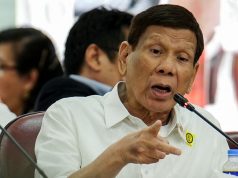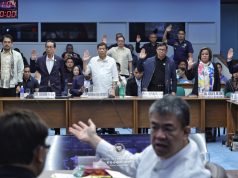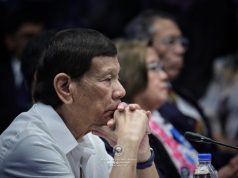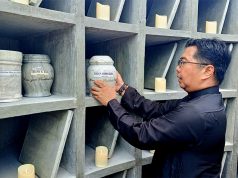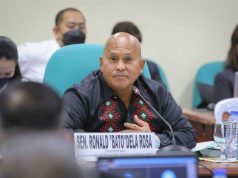MANILA, Philippines — (UPDATE – 7:08 a.m., December 22, 2017) The Duterte administration neither tolerated nor promoted the bloody operations of the so-called “Davao Boys” who were assigned to Quezon City Police District Station 6 that killed over a hundred people in less than a year under the government’s war on drugs campaign.
This was what presidential spokesperson Harry Roque stressed on Thursday after international news agency Reuters reported about the police officers who either came from Davao or near the hometown of President Rodrigo Duterte and joined Station 6’s anti-narcotics operations headed by Superintendent Lito Patay, formerly the police chief of Tagum City, Davao del Norte.
But Reuters called Roque’s claim “untrue.”
The news agency issued the following statement:
“The claim that Reuters gave the president’s office just an hour to respond is untrue. Reuters sent questions to the president’s office a week before the story was published and the president’s office confirmed it had received them. Reuters followed that up with phone calls and emails, but the president’s office never responded to our questions.”
The Reuters report said that from July 2016 to June 2017, Station 6 headquartered along Batasan Road, killed 108 people in its anti-drug operations.
According to Reuters, Patay had been handpicked by national police chief Director General Ronald dela Rosa for the post, which Patay assumed in July 2016. Patay, meanwhile, assembled the Davao Boys, who had all served with him previously.
Reuters said Patay had ordered the Davao Boys “to lead the buy-bust raids.” In September this year, Patay was promoted and assigned to the Criminal Investigation and Detection Group.
READ: THE DAVAO BOYS | How a secretive QC police squad racked up kills in Duterte’s drug war
Roque said the fact that the administration did not object to the Supreme Court’s issuance of a writ of amparo against Station 6 policemen was proof that it wasn’t condoning what they did.
“So the response is, we’re not taking it sitting down. (The) Government [referring to the Office of the Solicitor General], when that petition for amparo was filed in the Supreme Court, did not oppose the petition. And that’s why the Supreme Court issued a writ of amparo,” said Roque.
“So question: Is government sanctioning the alleged operations of this Davao group? Clearly not. Because in that petition, government did not oppose it. In effect, government agreed with the allegations (in) the petition and that’s why there was a writ of protection issued,” he added.
Roque was referring to the high court’s ruling early this year, granting the January 26 writ of amparo petition filed by a “Tokhang” survivor and the families of four drug suspects killed during a police operation in Payatas, Quezon City in August 2016.
The high tribunal issued a temporary protection order against Station 6 anti-narcotics police officers, preventing them from entering the the residence and work places of the petitioners led by Efren Morillo within a one-kilometer radius.
In February 2017, the Court of Appeals issued a ruling that made the writ of amparo against Station 6 police officers permanent.
The appellate court prohibited Station 6’s Senior Insp. Emil S. Garcia, Police Officer 3 Allan Formilleza, PO1 James Aggarao, and PO1 Melchor Navisaga and any of their agents from entering within a radius of 1 kilometer from the residences and work addresses of the petitioners.
On Thursday, Roque explained that the writ “includes the duty to investigate alleged perpetrators of human rights violations” and also obliges the Philippine National Police to investigate and confirm the allegations in the petition.
He added that the writ mandates the court to inquire with the PNP regularly regarding the status of its investigation.
Meanwhile, Roque on Thursday called the Reuters reporter who sought his comment for the Davao Boys story “arrogant” as “she” had given him a deadline of only one hour to respond, knowing that he was about to give a press briefing to Malacañang reporters in a few minutes.
He said he would write Reuters to formally complain about its allegedly “bad journalism”.




